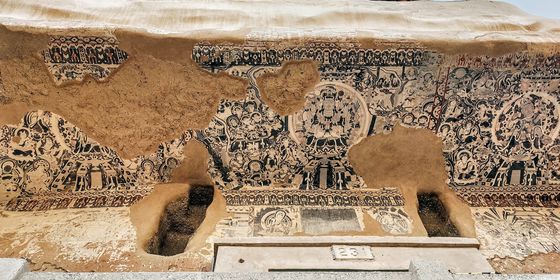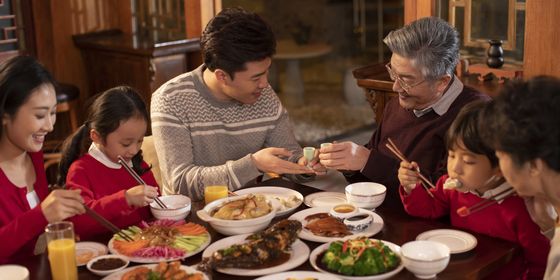An interview with food safety guru and ZCCW’s founder Wu Heng
An interview with ZCCW’s founder Wu Heng
食品安全网站“掷出窗外”创始人吴恒专访
Pioneer Profile: Wu Heng
Profession: the founder of food safety website “掷出窗外” (Zhí Chū Chuāngwài,Throw it out the Window, http://www.zccw.info/)
Nationality: Chinese
Wu Heng, together with 33 other volunteers, founded the website ZCCW (掷出窗外, “Throw it out the Window”). The site garnered domestic and international attention for its focus on grassroots food safety in China.The watchdog has over 3,000 news reports on contaminated and dangerous food in China. Users can search by region, food and keywords to help concerned citizens learn about what’s safe to eat and what’s not.
You set up the website when you were a Master’s student at Fudan University. What was your inspiration in launching this site?
In the second year of my Master’s studies, I always ordered this takeout dish with steamed rice and beef. It only cost 10RMB but had a lot of beef in it. My roommates said the beef was probably fake. But I didn’t take it seriously because I couldn’t believe there was such a thing as fake beef. That just seemed so ridiculous and completely beyond my imagination. Then, one day, I read a news report on people manufacturing fake beef with beef extract, using pork as a base. This meant that consumers were eating pork when they really thought they were eating beef. I was positively shocked and started to pay attention to food safety issues in China, and I realized that ordinary people didn’t know enough about these issues. Out of my sense of civil responsibility, I decided that someone had to do something about it, so I started a website.
Why “ZCCW”? How did you come up with that name?
When I was a middle school student, I read a story about the writer Upton Sinclair and the 26th American president Theodore Roosevelt. In 1906, Sinclair wrote a novel named The Jungle regarding a meat processing factory in Chicago. When President Theodore Roosevelt read the book, he was eating his breakfast and, immediately, he jumped up and threw his breakfast sausage out the window. Later, he invited Sinclair to the White House and launched an investigation into the appalling conditions described in the novel and pushed forward the Pure Food and Drug Act. While I was developing the site, I remembered this story and wrote it at the top of the website: People should think “throw it out of the window” when faced with food safety crises. (掷出窗外—面对食品安全危机,你应有的态度!(Zhì Chū Chuāng wài—- miànduì shípǐn ānquán wēijī, nǐ yīng yǒude tàidù!)
On May 3, 2012, about 25,000 people visited your website in just two hours, causing it to crash. What caused your site to go viral and what sort of traffic does your site get now?
The website was set up in June 2011. In the beginning, daily hits were only in the thousands and remained that way for a long time. At some point, it was forwarded on Sina’s Weibo (microblog) and hits suddenly soared, causing a crash on May 3, 2012. After I expanded the server on May 11, more than one million people visited the website. Now, there are a couple of thousand hits each day. As of now, the total number of hits exceeds six million. According to IP analysis, the visitors are mainly from Beijing, Shanghai and Guangzhou.
What role do you think your website plays and what sort of role do you think it can play in the future?
Currently it plays the role of a database, as these statistics have never really been collected before. I think what we are doing is only the first step: understanding the current situation and paying attention to the questions. I will continue perfecting our database. In the future, I hope we can “抛砖引玉” (pāozhuān- yǐnyù) or “throw away a brick in order to get a gem”: I hope my website is that brick.

Courtesy of www.zccw.info
The website has collected over 3,000 news reports on poor food quality. How do you ensure the accuracy of the news? What is the standard for collection? What do you do when you publish an inaccurate report?
We attach great importance to this issue and we have a high standard of selection. First, the news reports are selected from news agencies with high credibility. Second, for the same event, we collect news reports from different news agencies. We provide a platform for viewers to learn about the event from different aspects and angles in order to maintain accuracy. When we find that we have published an inaccurate report, we remove it from the site immediately. For example, there was once a bogus report about fake cucumbers and after the news agency published an apology for its inaccurate report, we removed it from the website.
In May 2012, you had talks with the Shanghai Food Safety Committee. Do you think sites like this can play an important role in policy making?
Yes, it can. First of all, I was interviewed by the Shanghai Food Safety Committee in order to understand the point-of-view of everyday people and got the Committee’s support. This helped ordinary people learn that we can do more to change food safety if we take a sensible and reasonable approach to these issues. In addition to having relationships with policy-making organizations, my website transmits a voice that many ordinary people regard as important. Although the effects may not follow a very direct path, they are real and happen all the time.
In your opinion, what can ordinary people do to help put a stop to contaminated and dangerous food?
I hope that when we are facing these issues, we should all act accordingly: don’t be indifferent. For example, if a milk brand is found to be contaminated and dangerous, please don’t buy that milk brand. It may take a long time to see results, but the day you say ‘no’ to contaminated and dangerous food is the day you are on the path to stopping them.











